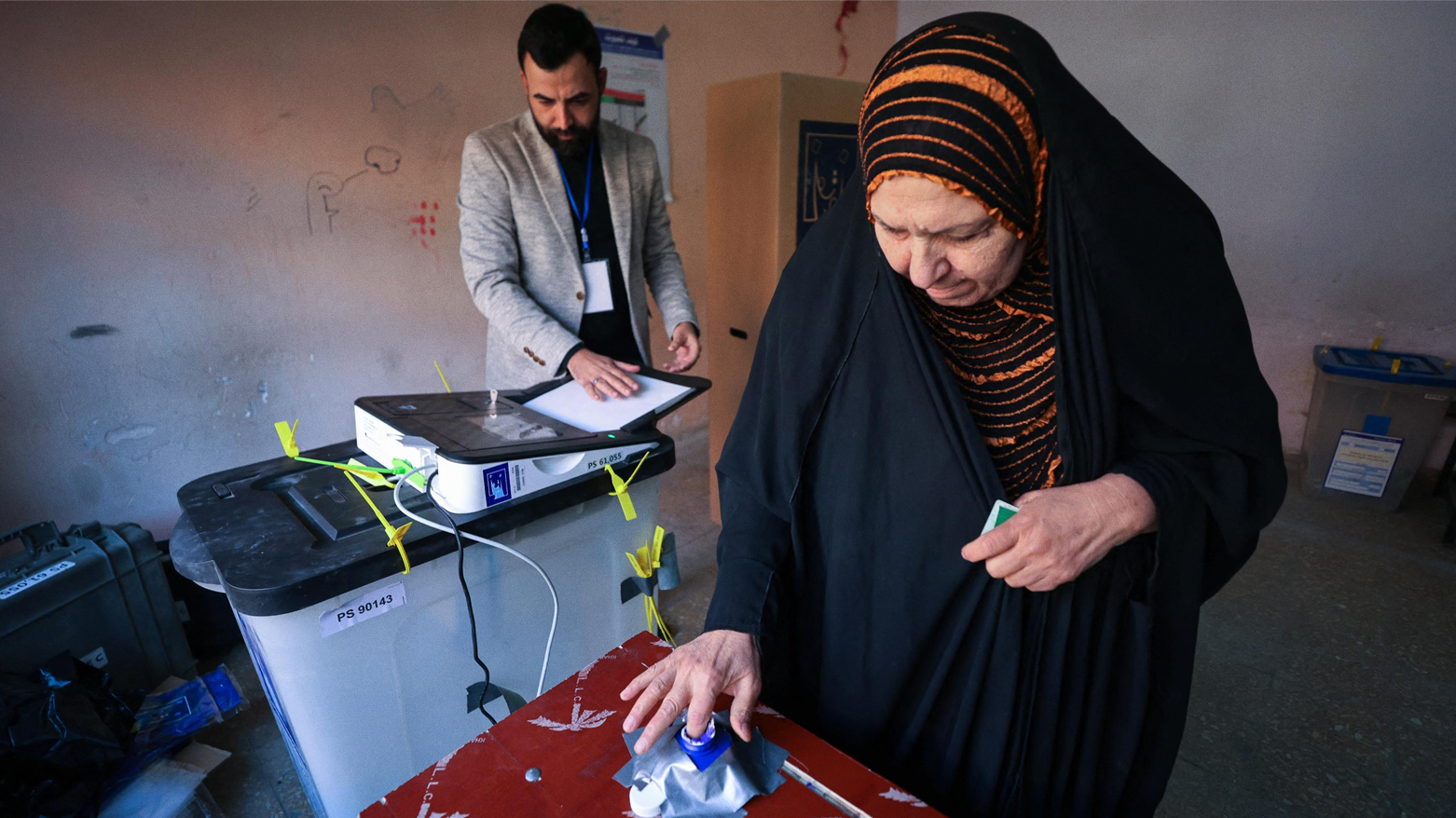Iraq Trials New Voting Tech Ahead of Polls
Iraq has begun trial voting for its November election, introducing facial recognition to solve fingerprint reader failures and canceling the use of election ink. The new system aims to ensure a smoother process for nearly 30 million voters.

ERBIL (Kurdistan24) – As Iraq prepares for its sixth parliamentary election this autumn, electoral officials have launched trial voting featuring new technology, including facial recognition, designed to eliminate one of the most persistent and frustrating problems of past polls: the failure of fingerprint scanners to read voters' prints.
The Independent High Electoral Commission of Iraq is rolling out the new system as it begins preparations to serve nearly 30 million eligible voters across the country and the Kurdistan Region.
Marwan Mohammed, the head of the Erbil branch of the Independent High Electoral Commission of Iraq, confirmed the start of the testing phase in an interview with Kurdistan24 correspondent Hoshmand Sadiq on Sunday. "Today, test voting for the sixth session of the Iraqi parliamentary election began at all stations," Mohammed stated. He added that a more comprehensive test of the voting devices will be conducted inside schools in another 10 days.
Addressing the critical issue that has plagued previous elections, Mohammed detailed the commission's solution.
"One of the major challenges facing the Commission, which was a significant problem for citizens in previous years, was the failure to read fingerprints. However, in this session, we have completely resolved this issue," he told Kurdistan24.
He explained that if the device fails to read a voter's prints after all ten fingers are scanned, a new procedure will be initiated. "A picture of their face will be taken via a camera and compared with the picture stored in the device. If it is the same person, they will be allowed to vote."
The head of the Erbil commission branch also revealed that "smart cameras will be installed at all centers to take pictures of the voters."
In a specific accommodation, he noted that the system will also resolve issues for citizens with certain health conditions. "In this election session, people with diabetes will not have a problem voting and can vote without a fingerprint," Mohammed said.
Detailing the logistical preparations within the Erbil governorate, Mohammed noted that 53 registration centers have been established, with one polling station to be opened in each. An additional station will operate inside the Commission's main office, and two special polling stations will be designated for security forces to cast their ballots.
This technological overhaul is part of a broader shift in electoral procedures.
On Sunday, July 20, 2025, the Iraqi High Electoral Commission officially decided to cancel the use of "election ink" for the upcoming vote. The commission announced that the use of biometric cards and the scanning of three of the voter's fingerprints have made the traditional ink-staining procedure redundant.
The sixth session of the Iraqi parliamentary election is scheduled to be held on November 11 of this year, where millions will participate in the democratic process.
Kurdistan24 correspondent Hoshmand Sadiq contributed to this report.
